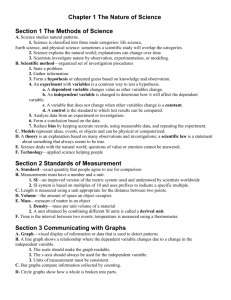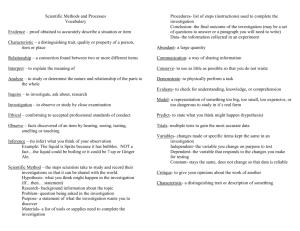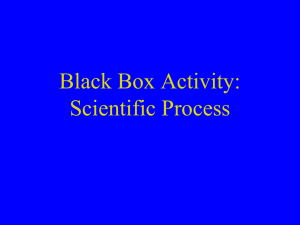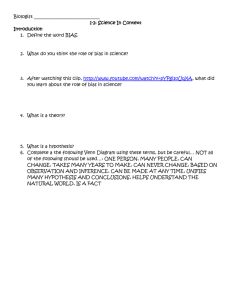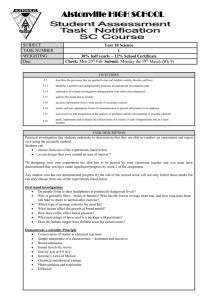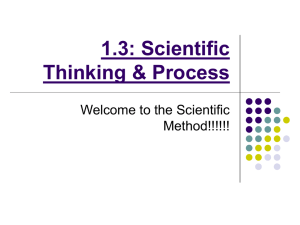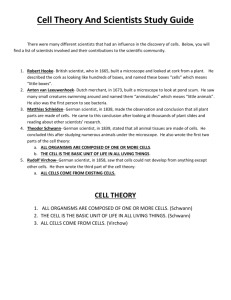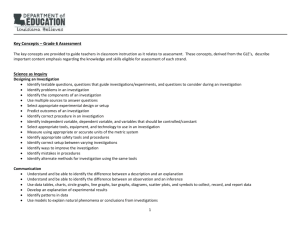Short Exam Questions
advertisement
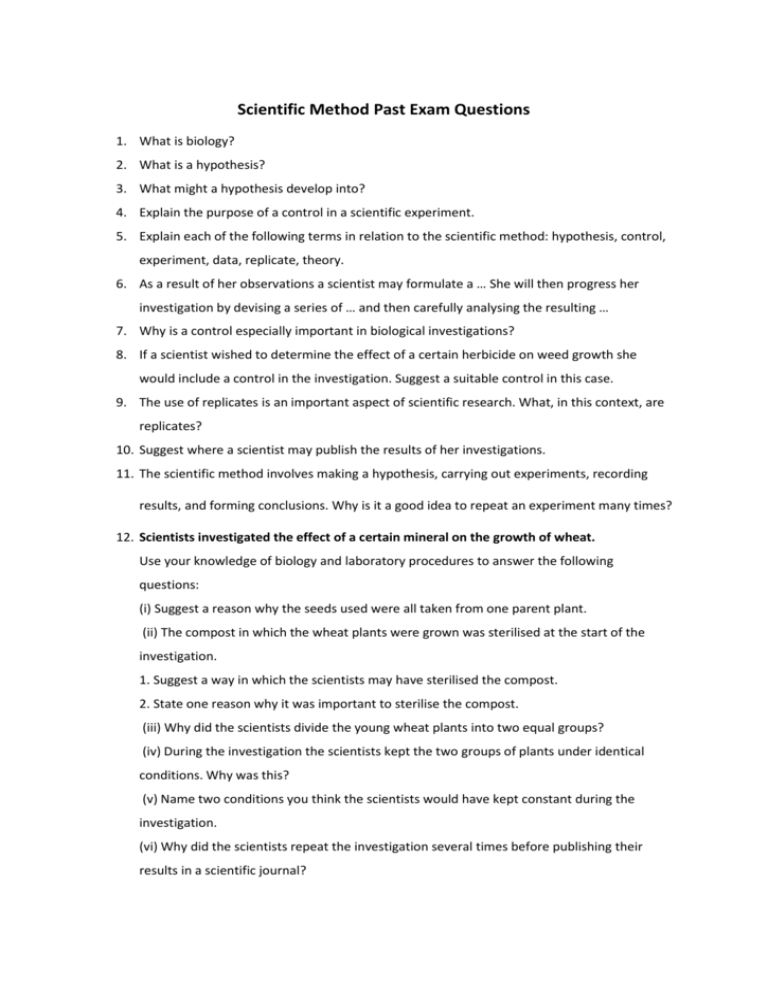
Scientific Method Past Exam Questions 1. What is biology? 2. What is a hypothesis? 3. What might a hypothesis develop into? 4. Explain the purpose of a control in a scientific experiment. 5. Explain each of the following terms in relation to the scientific method: hypothesis, control, experiment, data, replicate, theory. 6. As a result of her observations a scientist may formulate a … She will then progress her investigation by devising a series of … and then carefully analysing the resulting … 7. Why is a control especially important in biological investigations? 8. If a scientist wished to determine the effect of a certain herbicide on weed growth she would include a control in the investigation. Suggest a suitable control in this case. 9. The use of replicates is an important aspect of scientific research. What, in this context, are replicates? 10. Suggest where a scientist may publish the results of her investigations. 11. The scientific method involves making a hypothesis, carrying out experiments, recording results, and forming conclusions. Why is it a good idea to repeat an experiment many times? 12. Scientists investigated the effect of a certain mineral on the growth of wheat. Use your knowledge of biology and laboratory procedures to answer the following questions: (i) Suggest a reason why the seeds used were all taken from one parent plant. (ii) The compost in which the wheat plants were grown was sterilised at the start of the investigation. 1. Suggest a way in which the scientists may have sterilised the compost. 2. State one reason why it was important to sterilise the compost. (iii) Why did the scientists divide the young wheat plants into two equal groups? (iv) During the investigation the scientists kept the two groups of plants under identical conditions. Why was this? (v) Name two conditions you think the scientists would have kept constant during the investigation. (vi) Why did the scientists repeat the investigation several times before publishing their results in a scientific journal?
